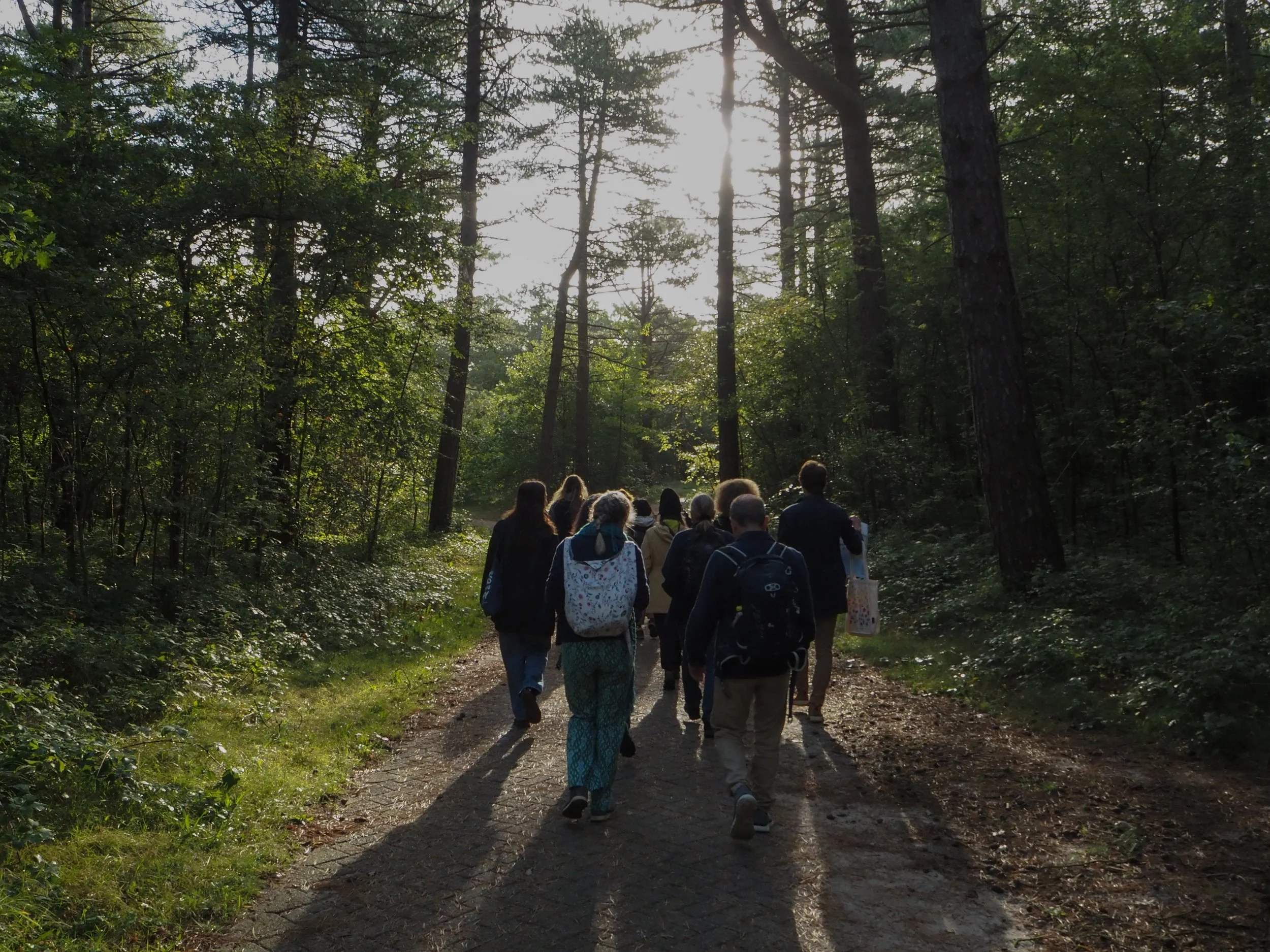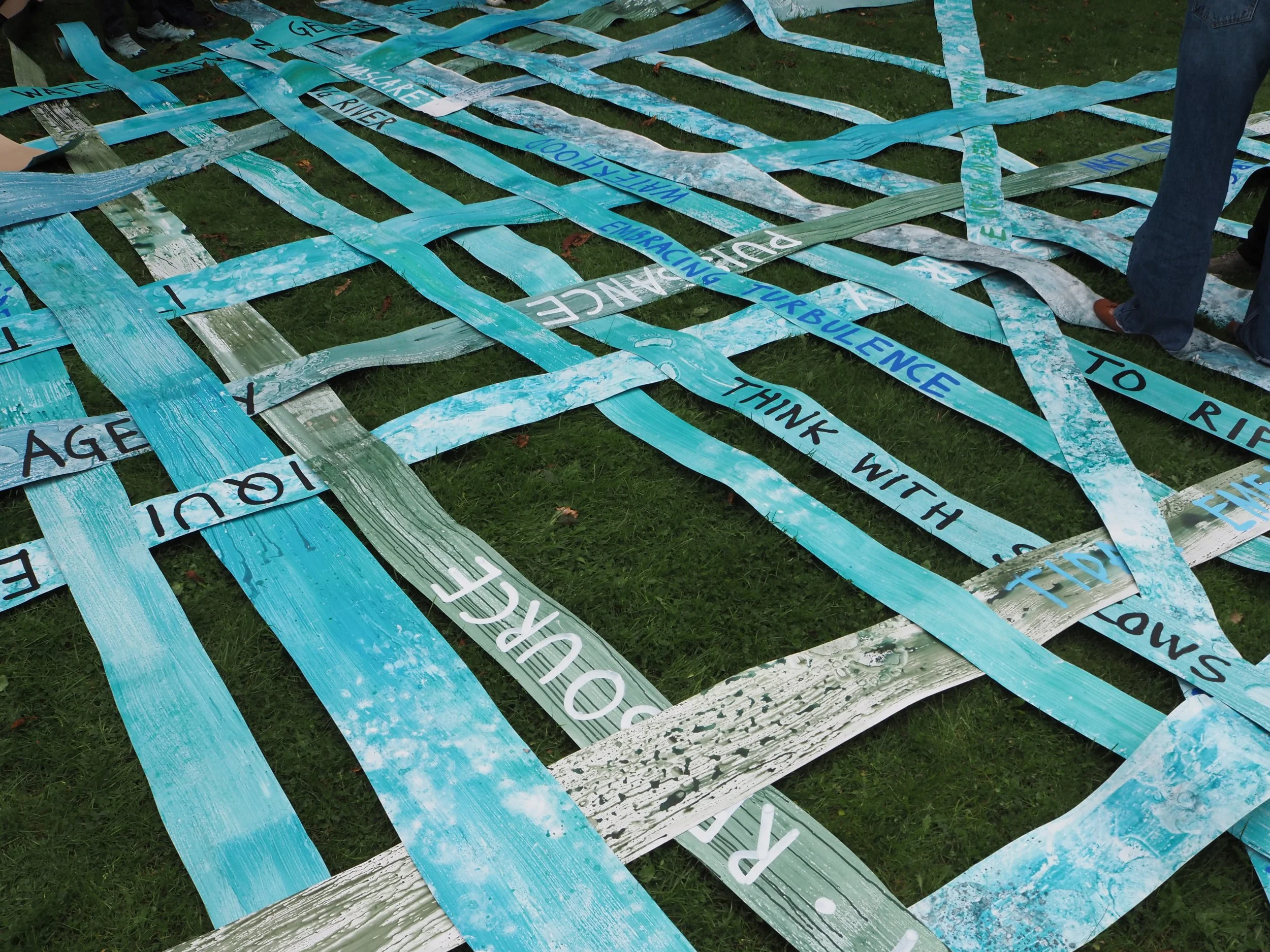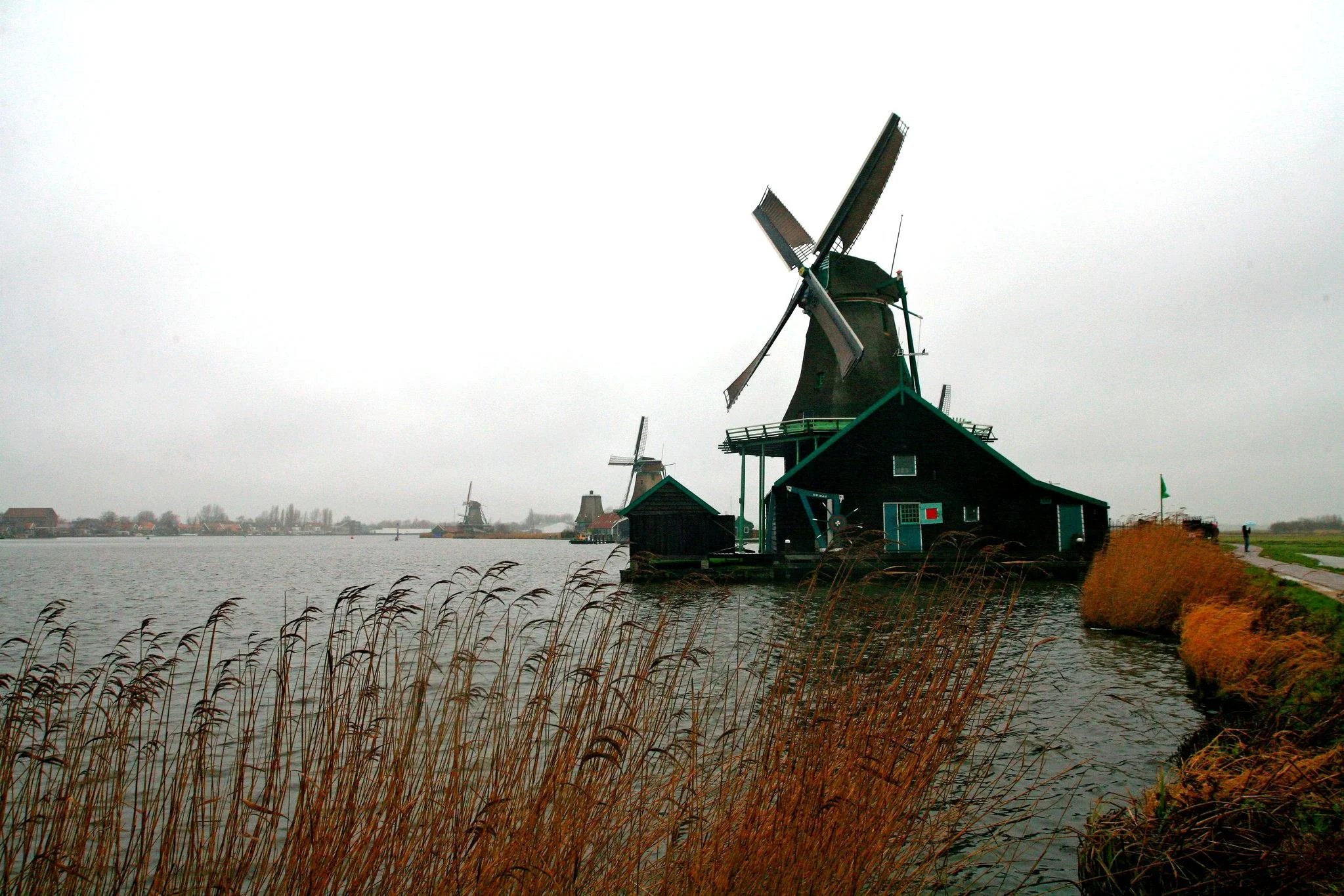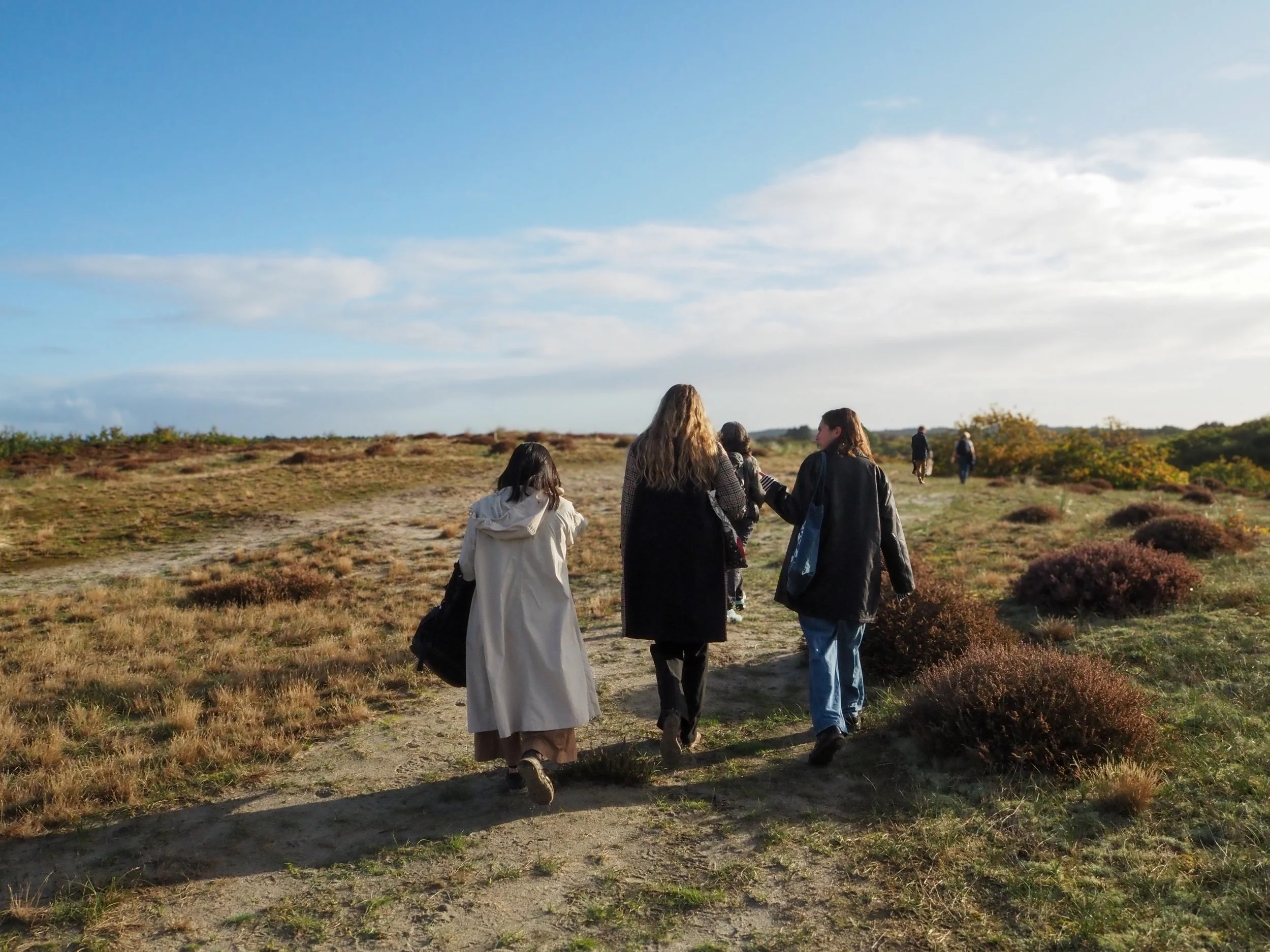
Living Imaginaries
Fusing the grounded and the visionary to reshape how we govern, relate and live.

Living Imaginaries combines creative re-imagination with practical pathways for structural change. Through research, co-design, exhibitions, strategic advising, and policy engagement, we support the development and implementation of alternatives that challenge dominant paradigms and open space for more just, caring, and connected ways of living.

Why imaginaries
Most environmental and social movements respond to crisis, with urgency, with care, and often for good reason. But urgency alone keeps us trapped in reaction, rather than opening space to imagine the world we want to create. Many solutions today still rely on the same logic, language, categories and assumptions that caused the harm in the first place.
At Living Imaginaries, we understand imagination as a capacity for systems change. Before we act, we imagine. Every policy, strategy, or intervention is shaped by the underlying worldviews — what we call imaginaries — that determine which problems are visible, whose knowledge counts, and what futures feel possible.
For instance, imaginaries like nature as separate from humans justify extractive development and obscure interdependence, reinforcing governance that treats ecosystems as external, controllable, and exploitable. Oceans as trade routes reduces marine spaces to corridors of commerce and security, sidelining their ecological, cultural, and multispecies life. Food as a supply chain flattens nourishment into a linear process of production and consumption, concealing its social, ecological, and political entanglements.
We use imaginaries as a lens to reveal the assumptions shaping today’s responses and to create space for new ones to take root. That means working with people and institutions to surface dominant narratives, co-create alternatives, and support their flourishing in policy, practice, and daily life. This is how we move from crisis to possibility and from reaction to worldbuilding.
Claudia Fernandez de Cordoba Farini
Founder & Chief Imaginaries Officer
🐝
Claudia is a cross-pollinator bridging food, climate, health, and more-than-human governance. She has shaped regional and national strategies, co-leading WHO’s food systems and climate change strategy across 38 Asia–Pacific countries, leading the UK’s first One Health strategic vision at DEFRA with eight teams, and contributing to the UK’s negotiations on the WHO Pandemic Accord to advance upstream socio-ecological approaches.
She founded Living Imaginaries as a space to integrate imagination, care, and multispecies justice into how we design governance, co-create knowledge, and drive institutional change. The initiative grows out of the intersection of her policy and practice work and her PhD research at UCL, which reimagines biodiversity governance through more-than-human ways of relating with the North Sea and its connected rivers.
Her work envisions and supports alternative futures where ecological and social systems are not treated as separate, but as deeply intertwined.

HOw we Work
Between the institutional and the insurgent
We work with governments, international organisations, and research centres; as well as with civic labs, artistic spaces, and community initiatives. We create space for emerging approaches to be recognised, resourced, and embedded into practice; while supporting established institutions to think more expansively, reflexively, and relationally.
From imagination to implementation
We support implementation by co-developing governance prototypes, facilitating cross-sector workshops, building future-oriented tools, and advising on institutional change. This means working across strategy, design, and policy to help reimagined systems take root in real contexts.
We operate translocally
We surface grounded alternatives already alive in local contexts, and support exchange across geographies, political systems, and ecosystems. This creates space for shared learning without flattening difference, and for change that travels without losing its roots.
“ Because imagination is not always otherwise, sometimes is elsewhere. ”
– Robert Macfarlane
Marine governance
Collaborating with the Embassy of the North Sea and Dark Matter Labs to reimagine biodiversity governance with rivers and seas by centering more-than-human perspectives through legal, ecological, economic, and cultural lenses
Food systems
Partnering with the Netherlands Environmental Assessment Agency, Wageningen University, and the Netherlands Food Partnership to explore biodiversity narratives in food system transformations — opening pathways for more plural, reflexive, and systemic governance.
One Health
Working with the UCL Warning Research Centre to address the upstream drivers of health risks.
Let’s re-imagine together.
Connect with us to co-create futures that honour interdependence among people, planet, and all forms of life.







